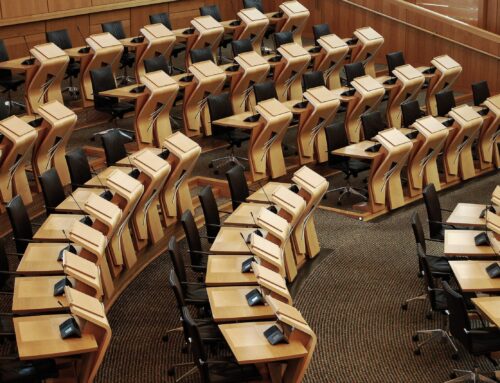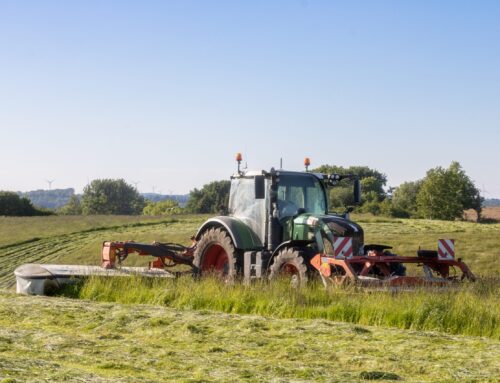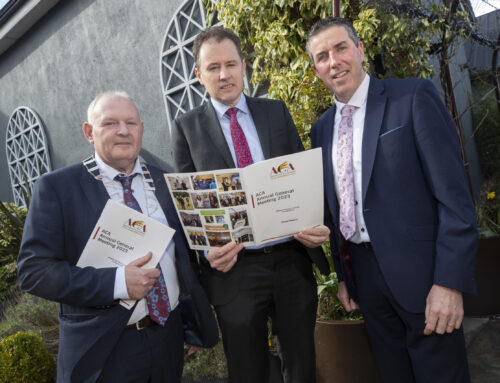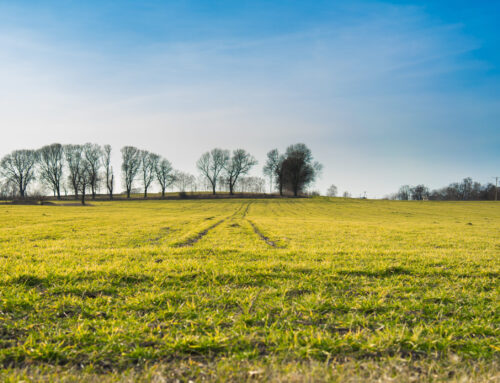Ireland’s organic sector has many ambitious targets to hit before the end of the decade. One ambitious target is to triple organic production by 2027 to 7.5%, while by 2030 10% of utilised agricultural area is to be farmed organically. With news in Germany that organic farmers are struggling with inflation rises and needing more state support, Agri Insider spoke with Padraig Brennan, Chair of the Organic Forum and Jack Nolan, Senior Inspector and Head of the Organics Division in the Department of Agriculture, Food and the Marine about the outlook for our Irish organic sector.
Commitments
Ireland has a long term commitment to increase its organic production capacity threefold by the end of the decade. It is part of Ireland’s Programme for Government objectives and the wheels have already been set in motion with many government delegations having visited the Biofach Conference in Germany, the largest market in Europe in terms of value, worth €15.9 billion alone in 2021.
In terms of land, the current EU Green Deal sets a target of 25% of the EU’s agricultural area to be farmed organically by 2030. Ireland’s current area is approximately 2% of the agricultural area, about 110,000 hectares. Ireland’s Programme for Government has set a target of more than tripling the organic land area with a target of 7.5% of farmland to be under organic production by the end of the CAP cycle of 2027. This compares with an average of 9.1% of UAA across the European Union. This target has been incorporated into Ireland’s CAP Strategic Plan, Food Vision 2030 and Climate Action Plan.
Meeting these targets sounds ambitious but Jack Nolan is optimistic that Irish farmers will adopt the system. He said: “We doubled numbers this year, 2,100 (new entrants) applied before Christmas. It seems to be there is a huge appetite for it and talking with farmers with the high price of fertiliser and more returns on what they’re producing, they’re looking at ‘is there a way to diversify and change what’s happening on the farm?’.
“For a lot of farmers, they won’t have to change too much because they have already cut back a lot on fertiliser, so they just need to learn more about it, what exactly does organic farming involve and basically it’s understanding more about the soil and how it works.”
Opportunities
The Minister highlighted the export opportunities that exist for products such as organic beef and lamb at last year’s Biofach Conference, the World´s Leading Trade Fair for Organic Food. It will be interesting to see how well Ireland will be represented at this year’s trade fair taking place in Nuremberg in just under two weeks. Pippa Hackett, Minister of State at the Department of Agriculture, Food and the Marine will be using the event to push the priority of developing the market for Irish organic food. Latest figures from Bord Bia show the organic retail food market in Ireland is now worth over €260 million annually.
This turnover is being recognised by Irish farmers as over 2,000 applicants expressed interest for the Organic Farming Scheme (OFS) 2023. Allied to this, the announcement of enhanced payment rates by the government surely caught the attention of many last autumn. From a market’s perspective the trajectory looks promising as between 2015 and 2020 retail sales of organic products doubled in the EU.
Possible dark clouds?
There are also reasons to be somewhat cautious. For the first time in history, Germany’s market for organic produce has shrunk, with sales down 4.1% by the end of October, according to the German Farmers’ Association (DBV). Food prices have been universally impacted by geopolitical events in 2022 affecting EU consumers’ purchasing power, but should they persist, including a phase of high inflation and slow economic growth expected in the coming years, it may affect the growth of organic consumption in the EU according to the ‘Organic farming in the EU’ report released by the European Commission this month. In the report it was also stated that organic food was perceived as less affordable compared with conventional food.
It has been highlighted that many of our organic products may end up in places such as Germany, so is it a worrying sign for Irish producers? Padraig Brennan replied: “I think you have to look at the last six or eight months, a very particular set of circumstances have come about but if you look at the last five or ten years across Germany or any of the major European markets, they have seen consistent growth in the size of the organic food sector.
“Like Germany itself has been recording near enough to double digit growth every year for the last ten years or so. Obviously now is a very particular time in terms of the cost of living challenges and everything else that’s happened in the marketplace…..Organics, like a lot of sectors, has felt a squeeze from that.
“You look at the German national policy point of view or even the Nordics, they’re all increasing their ambition for the proportion of organic farming in their own countries so that would suggest that you have a situation where markets like that, organics are rapidly becoming more mainstream and you would like to think over the medium term, that the growth we have seen over the last five or ten years will continue to be evident.”
Jack Nolan, Senior Inspector with the Department commenting on the news from Germany observed that conventional meat sales had also contracted in line with organic decline. As well as this, the summer drought had a negative impact on German farmers according to Jack, but Ireland’s grass based model might provide a lower production cost system for Irish farmers than our European counterparts.
Speaking about the development of the Irish market, in light of the German contraction, Jack said: “We need to put in place a strategy as we grow. We’re lucky that we have Bord Bia there and they have a worldwide reach. Two weeks ago they appointed an organics sector manager for the first time ever, Emmet Doyle.
“So we’ll have a lot of organic produce coming online in two years time, from farmers that converted this year, as there is a two year conversion process. That gives time for Bord Bia to build a market and make sure there is a market there for what we produce.
“The commission is putting support behind it and so are the state so we just need to make sure we build it properly, that it’s done with due consideration. There is an Organic Strategy Forum in place with all the stakeholders there from processors, farmers and state agencies and we’re making sure that all these issues are dealt with as we grow.”
Irish targets
Padraig Brennan, recently appointed to chair the organic forum by Minister Hackett is confident that we can meet our organic targets. He said: “We’ve seen nearly a doubling of farmers that are in the Organic Farming Scheme (OFS), that’s a good boost in terms of farmer interest. From my view, I think what you’re seeing is that farmers more than ever before are looking to diversify their farming enterprise and organics is one of the options they are looking at.
“You’re looking at 2,100 farmers having applied for the OFS in December so I think you obviously need to see that momentum continuing over the next number of years to hit that 7.5% target by 2027….but when you look at the breakdown of the farmers that applied in December, there was a strong proportion of livestock farmers in that and I think particularly those farmers maybe that are more lightly stocked, they’re the farmers that are looking at organics as a system that might work for them.”
Overcoming barriers
In a European context, Ireland is still well behind organic pioneers such as Austria and Denmark which have much more areas of land dedicated to organic farming. Nonetheless, with CAP, better economic support and advisory support, Irish organic farming is expected to grow.
Jack Nolan said: “I suppose organics hasn’t been seen as a realistic option for a long time because they didn’t think it was something worth getting into but more people are looking at it, coming to us and there’s also advisory support there. This time last year Teagasc had two organic specialists. Today they have six organic advisors and three specialists. The ACA (Agricultural Consultants Association) held a series of information meetings last year, they’ll be doing the same this year so the support is there for farmers.”
Padraig Brennan also touched on some of the traditional barriers that have hampered farmer engagement, primarily the market certainty and how the change in practice deters prospective farmers from entering organics. The Organic Forum chairman agreed that the advisory support has accelerated to help farmers take the next step along with more farmwalks and Knowledge Transfer events helping to address any uncertainty.
Padraig also revealed that figures from the upcoming National Farm Survey will help farmers to better understand organic systems in comparison with conventional in order to break down barriers. He concluded from a market perspective: “At the moment there has been a slow down across Europe in terms of demand for organic food but in the medium to longer term trends, it would certainly appear to be positive. It won’t be for every farmer but for farms that would feel it would add up to their system, can they be confident enough in taking that step.”
There is a lot of work to do to achieve our organic objectives by the end of the decade but despite the small drop in consumer demand for organics in Europe, Irish eyes are smiling for the prospects ahead.





